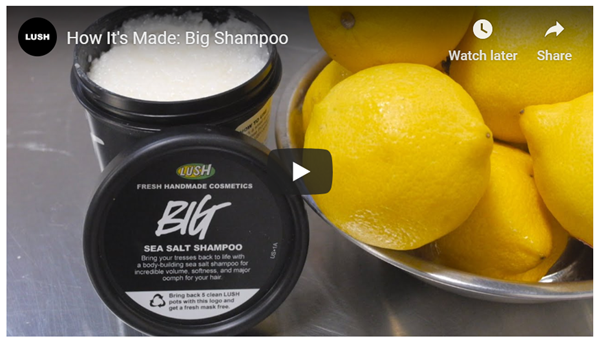How Can Your Brand Use Empathy to Enhance Your Marketing?

It’s a problem we all face in marketing, how do we get our audience’s attention? Today, there are more marketing channels than ever, meaning more ways to talk to our customers. But, are they listening? Or are they immune to the countless ads thrown at them on a daily basis?
To cut through the noise, brands are turning to empathetic marketing, focusing on emotions before conversions to create meaningful content that resonates. To do this successfully, you must really understand what your customers want. Businesses often fail to consider what it takes to place relationships with their customers at the heart of their brand. Empathy allows you to show your audience you understand, creating relevant and authentic ways to engage them.
What is empathetic marketing?
Civil Rights Activist, Maya Angelou once said “People will forget what you said, people will forget what you did, but people will never forget how you made them feel.” The same can be said for marketing; it should begin with empathy. If you don’t know your audience, how can you engage with them? Build a rapport with them? No matter how much time is spent obsessing over the newest automation tools, social media algorithms or optimisation practices, if you don’t empathise with your customers’ needs and pain points, how will you truly give them what they want?
Effective empathy marketing forces brands to look beyond the practicalities and into emotion. It’s a way of appealing directly to your audience by walking in their shoes, evoking an emotional response that raises awareness and ties in with your business objectives. Doing so helps shoppers relate to your brand and, when this connection is made, it is capable of subconsciously influencing their purchase decision. Here are a few examples of brands doing an exceptional job at empathetic marketing:
Airbnb
Online tourism marketplace, Airbnb, fosters empathy by inviting customers into internal decision-making. Setting themselves an ambitious vision of ‘creating a world where anyone can belong anywhere’, Airbnb are no stranger to evoking emotion in their customers.
Every year, hundreds of Airbnb’s employees and their hosts gather for a 3-day event discussing successes, challenges and thoughts for the future. A chance to learn from one another, share their experiences and encourage them to truly understand how company policies and processes are received by the hosts and the customers. This is a brilliant opportunity allowing Airbnb hosts to build empathy for the brand. The more they understand the vision, the more they can support it. During a customer experience conference, Desiree Madison-Biggs, Programme Lead of Airbnb’s CX team, explained the experience of employees and customers are parallel stating, “We are the customers, the customers are us”. With a customer-centric strategy at the forefront, Airbnb has become a brand ambassador for empathy.
Lush
Vegetarian, vegan and cruelty free cosmetic retailer, Lush, are all about natural products. As part of their marketing efforts, they have produced a ‘How It’s Made’ video series featuring a transparent run through of how some of their most popular products are created.

This approach backs their vision of them wanting customers to buy truly natural beauty products made from fresh, organic and ethically sourced ingredients. They are a brand that cares, so much so, they will happily share processes of how products are made giving consumers peace of mind so they can shop consciously.
Why does empathetic marketing matter?
Today’s consumers are different. You’ve probably heard all about Generation Z. Well, they’re forecasted to make up 40 percent of all customers by 2020 and they only have an eight second attention span, significantly less than millennials at 12 seconds. You have only a few seconds to convince these shoppers that your social media post, article, ad, or any form of content is worth their time. How do you do this? Through emotion! Gen Z have been dubbed the generation who care. They actively seek content that prompts change, they know how to access information fast and form their opinions even faster.
Evoking emotion with your audience is important, there’s a wealth of research that shows emotional advertising has a significant impact on brand loyalty. Nielsen reported that ads with an emotional response from consumers spike a 23 percent increase in sales compared to average ads. Research conducted by Harvard Business Review also found a positive emotional bond with a brand matters more to consumers than their satisfaction. Your brand’s empathetic marketing will see a clear return if your audience can understand the connection between your actions and the message you deliver. Considered, thought-provoking, and relevant content not only bolsters your SEO efforts, but it can also be key to capturing your target audience’s attention encouraging them to buy into your brand.
Any brand can practice empathetic marketing. Your campaigns and conversations don’t have to make a huge statement or address major social topics, instead, your empathetic marketing should reflect your business values, culture, ethos and objectives, while identifying with your customers.
How to use empathetic marketing to increase sales
Creating a lasting competitive advantage is hard. But if you can emotionally connect with your customers and give them what they want, it becomes a whole lot easier. In today’s rapidly changing digital world, brands must move away from being marketing-centric to be customer-centric. This will help generate more sales, more ROI and more revenue. Effective empathetic marketing is a combination of settling realistic expectations, really getting to know your audience and sticking to your objectives. Here are a few ways of how you can use it to increase sales:
- Understand your customer needs: Empathetic marketing is not the result of a customer survey or questionnaire. Although qualitative and quantitative data are extremely important, it’s also essential to join the world of your audience generating a real understanding of how they think and feel. Meet them face to face, talk to them, listen and use empathy maps to show you understand this information. This is an essential first step as not every customer will connect or react to your message in the same way. You need to understand who you’re talking to so that you can communicate with them effectively. Once you know your audience, you can consciously apply this insight to your empathy marketing. Giving your customers what they want by understanding what motivates them is pivotal to implement effective empathetic marketing.
- Develop customer personas: Personas play an important role in developing customer-centric marketing. You should take the time to explore who your customers are, revealing their habits, influences, emotions, and behaviours. This insight can be used to create a documented persona, helping you to always consider their pain points, interests and how they feel. Understanding your customer allows you to align your business offering and will inform your content too.
- Create content your customers actually want: Customers feel good when a brand offers a solution to their problem. Produce content that demonstrates your brand understands their problems and has the answer and you’ll truly resonate with your audience. Leveraging your customer personas, you’ll not only establish the right brand narrative, but you’ll also identify the best prime channels to reach your audience. It’s important to not publish content for content’s sake. It needs to be useful, relevant and interesting enough to evoke an emotion, compelling consumers to buy from you.
- Practice what you preach: Sure, your customers want empathy, but so do your team. Implement these tips internally, practicing empathy with colleagues and making it a key part of your values. Unempathetic behaviour towards customers can often be a reflection of poor internal culture. Empathising with your customer’s problems, thoughts and feelings by immersing yourself into these practices helps create a true understanding between your brand and your audience.
Genuinely caring is the most underrated strategy, implementing these ideas is a good place to start to show your customers that you care. Marketing is evolving and it’s important your brand evolves with it. Empathy is all about making your marketing meaningful, could it be the key to placing customers at the core of your brand? Reach out today and let us know your thoughts.